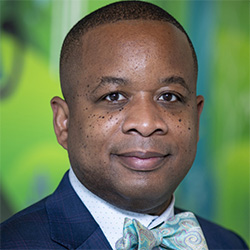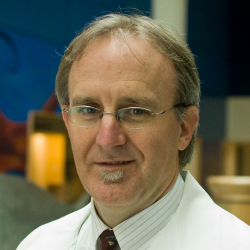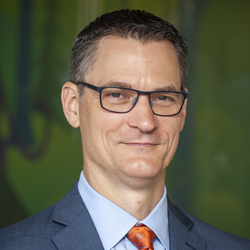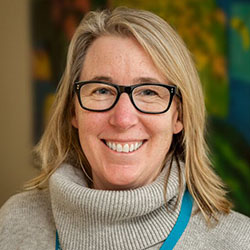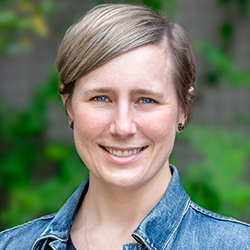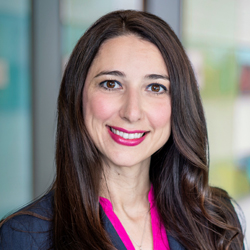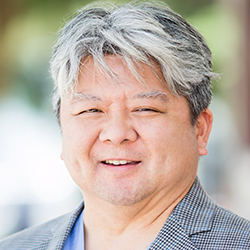Meet Your Team
Seattle Children’s Transplant Team
A successful transplant is a team effort. At Seattle Children's Hospital, the same team of dedicated specialists will work with you to care for your child throughout the transplant process.
Our team has some of the best and brightest transplant specialists in the nation, and our surgeons employ the latest surgical techniques. We care for children of all ages, from infants to young adults. We are committed to giving your child the best chance at an active, healthy life so that your child and family can get back to doing the things you all love most.
Leadership
-
Senior Vice President and Surgeon-in-Chief; Surgical Director, Kidney Transplant
-
Surgical Director, Transplant Quality
-
Medical Director, Cardiac Transplant/Heart Failure Service
-
Division Chief, Congenital Cardiac Surgery; Surgical Director, Cardiac Transplant; Director, Mechanical Cardiac Support and ECLS Services
-
Medical Director, Kidney Transplant; Associate Center Director and Medical Director of the Research Integration Hub
-
Medical Director, Intestinal Transplant
-
Medical Director, Liver Transplant Program; Liver and Intestinal Failure Clinical Center Director
-
Interim Chief, Pediatric Transplant
Teams
Heart Transplant team
Everyone on the heart transplant team is dedicated to helping your whole family return to an active, normal life. Learn more about our Heart Transplant Program team.
Intestine Transplant team
After your child’s intestine transplant, our team of doctors, nurses and specialists can care for your child and help your family
Kidney Transplant team
Our transplant doctors are constantly improving surgery techniques and immunosuppression strategies to provide patients and families with the most current treatments and the best care in pediatric nephrology. Learn more about our Kidney Transplant Program team.
Liver Transplant team
Your child’s liver transplant surgeon will be part of a team with some of the best outcomes in the nation, including a 100% one-year survival rate. Learn more about our Liver Transplant Program team.
More About Your Team
Our goal is to care for the whole child and the whole family. During your child's treatment at Seattle Children's Hospital, you may meet and work with:
-
Anesthesiologists and Pain Specialists
Anesthesiologists treat and reduce pain. Seattle Children's anesthesiologists will provide safe, family-friendly care before, during and after surgery. As part of your child's transplant team, our expert pediatric anesthesiologists, nurse anesthetists and nurse practitioners will:
- Discuss the surgery center routine and recovery
- Give you information about how children fall asleep under anesthesia
- Oversee your child's anesthesia and post-surgery pain care
Learn more about our Anesthesiology and Pain Medicine programs.
-
Cardiologists
Cardiologists treat heart diseases. As members of your child's transplant team, these doctors will:
- Help decide if your child needs a heart transplant
- Provide care after surgery
-
Chaplains/Spiritual Care
Seattle Children's on-call and hospital chaplains provide spiritual and emotional support. They serve many faiths and traditions. As members of your child's transplant team, our chaplains can offer your family comfort during the transplant process. They welcome calls day or night from patients and families. They can help you with:
- Difficulty coping
- Feelings of fear, guilt, vulnerability, discouragement, sadness or loneliness
- Major decisions
- Meaning or purpose in life
- Spirituality as a source of strength and meaning for you and your child
- Spiritual questions
-
Child Life Specialists
Child life specialists work with individual patients and families to help them reduce anxiety and adjust to the hospital experience. Through the use of age-appropriate activities, they help children and families understand illnesses and medical procedures and develop positive coping skills.
-
Dietitians
As members of your child's transplant team, our licensed dietitians will:
- Help manage your child's nutrition before and after transplantation
- Develop a special diet for your child's medical concerns
- Track weight gain or loss
-
Gastroenterolgists and Hepatologists
Gastroenterologists treat diseases of the stomach, intestines and associated organs, including the liver. Hepatologists treat diseases of the liver. As members of your child's transplant team, these doctors will:
- Help decide if your child needs a liver transplant
- Manage your child's treatment
- Help care for your child during and after surgery
- Help identify and manage transplant rejection
- Prescribe and manage your child's drugs
-
Nephrologists
Nephrologists treat kidney diseases. As members of your child's transplant team, these doctors will:
- Help decide if your child needs a kidney transplant
- Manage your child's treatment
- Help care for your child during and after surgery
- Help identify and manage transplant rejection
- Prescribe and manage your child's drugs
-
Nephrology Fellows
A fellow is a doctor who has finished medical school and a residency and is training to be a specialist. Our nephrology fellows are learning to treat kidney diseases. They will care for your child on day or night shifts during the hospital stay. As part of your child's transplant team, these doctors will:
- Assist the team in your child's general care
- Monitor your child's condition every day during the hospital stay
-
Pediatric Nursing Staff (Inpatient)
Our nurses are a vital resource for families. They are here to answer your questions and advise you and your child. Our pediatric nursing staff collaborates with transplant doctors to care for your child at Seattle Children's.
-
Pediatric Surgery Fellows
A fellow is a doctor who has completed medical school and a residency and is training to be a specialist. Our pediatric surgery fellows are learning about pediatric surgery. They will care for your child on day and night shifts during the hospital stay. As part of your child's transplant team, these doctors will:
- Assist the surgeons during your child's transplantation
- Monitor your child's condition every day during the hospital stay
-
Pharmacists
As members of your child's transplant team, our pharmacists will:
- Educate you about your child's medicines
- Help your child learn to take medicines correctly
- Explain side effects your child may experience
- Monitor your child's drug therapy while in the hospital
-
Physical Therapists
Children's physical therapists will help your child stay as active as possible during her the hospital stay. Without physical activity, muscles may become very weak, so our physical therapists work to help your child maintain muscle strength. Their goal is for your child to be strong enough to do normal activities by the time their hospital stay is over.
-
Primary Care Doctors
In addition to referring their patients for transplant evaluation, primary care doctors continue to manage the overall health care of a transplant patient. Your primary care doctor's knowledge of and history with your child makes this doctor an important part of the transplant team. During the recovery period and beyond, the primary care doctor will:
- Watch for certain transplant-related complications
- Perform preventive care and routine care of illnesses
- Manage other long-term conditions
-
School Teachers
Our hospital educators are Washington state-certified teachers and available at no cost to patient or family. They work closely with medical teams. They examine the impact of illness or injury on a patient's ability to do different types of school activities and assignments. They provide the following services:
- Individualized tutorial support
- Academic assessments
- Reviews of a patient's educational records and performance in the school setting
- Recommendations on how the school can best meet your child's specific educational needs
-
Social Services
Our social workers are trained to assist your child and family through the transplant process. As a member of the transplant team, your child's social worker will:
- Help you and your child make emotional adjustments during the transplant process
- Guide you to resources in and around Seattle Children's that will help you plan your hospital stay
- Help you and your child plan time away from work, school and home
- Explore and facilitate access to resources in your community
-
Transplant Nurse Coordinators
Our transplant nurse coordinators are registered nurses who have special training in the care of transplant patients. They will guide you and your child through the transplant process. The coordinator will:
- Answer your questions
- Assist with Transplant Clinic visits
- Help you and your child understand your child's medications
- Monitor lab values and medication changes
-
Transplant Nurse Practitioners
Transplant nurse practitioners coordinate care and communication throughout the transplant process, and keep communication open between all team members. They are the first point of contact for patients, families, referring physicians and team physicians. The nurse practitioners provide continuity between your child's inpatient and outpatient care. This includes:
- Educating families and staff about the transplant process
- Ordering diagnostic tests and managing medications during your child's stay in the hospital
- Keeping your child, family and referring physicians informed about transplant progress
- Monitoring your child's health daily during the hospital stay
-
Transplant Specialists
Our transplant specialists help families through the pre-transplant evaluation and financial aspects of a transplant. Our staff will:
- Schedule all pre-transplant evaluation visits
- Assist in obtaining insurance pre-authorization for transplant surgery
- Find out what your insurance will and will not cover
- Help with scheduling and referrals
-
Transplant Surgeons
Your child's transplant surgeon will perform the transplant operation. As a member of the transplant team, the transplant surgeon will:
- Help decide if your child needs a transplant
- Identify potential surgical problems before surgery
- Help manage your child's recovery and wound care immediately after surgery
-
Urologists
Urologists manage health care problems of the urogenital system. As part of your child's transplant team, the urologists participate in the transplant evaluation and may be involved in the transplant surgery. They focus on helping your child regain normal urinary functions.
